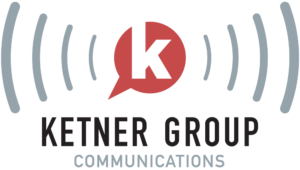 This blog was written by our intern, Kamilla Rahman.
This blog was written by our intern, Kamilla Rahman.
If you’ve ever surfed the web for more than 10 minutes, you’ve definitely come across the word millennial at least five times. People are constantly talking about millennials, what they’re doing, what they want, what they will be doing, how they react and how to resonate with them. Even the KG team has been known to write about millennials on behalf of our clients from time to time – here is a recent example.
According to Investopedia, “a millennial is the given name to the generation born between 1982 and 2004…this generation is often associated with technology and social media.” In the last couple of years, there has been a more specific consensus. A millennial is basically someone in their 20’s or 30’s.
The world is infatuated with millennials, and as a millennial, I honestly don’t get it. I was flipping through a few articles the other day and almost every article referenced the millennial generation. I do understand millennials are important, especially when regarding technology and retail. We’re a different generation, we’re nontraditional, we’re viewed as more independent, we have different expectations and we are more technologically advanced than our parents and grandparents with a tremendous amount of buying power.
But why the obsession?
Some of the headlines read:
- Who are the millennial shoppers? And what do they really want?
- How Millenials are Changing the Face of Retail Shopping
- MIllenials: Double Trouble for Retail
- Shopping Habits of Millennials all Retailers Need to Know About
Though all of these articles are extremely insightful, as a millennial, I don’t understand why all of these brands and companies are constantly trying to appeal to us. The word is everywhere. It’s basically inescapable and everyone seems to think that appealing to a millennial is the magic key to all things holy and great.
My brother and I are both millennials. He was born in 1985 and I was born in 1995. Throughout most of our lives, our purchasing habits, interests and even technological awareness have been different. Though they are closer today than they have ever been, they’re still completely different.
He’s 31, he goes to work, has meetings all day, buys suits and dress pants, goes to CrossFit, has nice dinners with his beloved girlfriend, just bought a house, gets a beer with his buds, checks his iPad for emails, pretty much knows what he’s doing with his life and occasionally has a late night out. I, on the other hand, am 21. I’m about to start my senior year of college, I intern, I’m an avid online shopper, I go out with my friends almost every weekend, I study, am always on the move and suffer withdrawal symptoms when I don’t have my phone for more than 45 minutes.
The only things we really have in common are that we stay busy and know technology. I may be wrong here, but that just doesn’t seem like the proper way to target consumers, especially in retail. The word millennial is too broad. It encompasses people that are in completely different stages of their lives. To me, focusing efforts around millennials is just an over-followed trend.
Don’t get me wrong; appealing to millennials has definitely shifted the way marketers appeal to consumers. It has become intuitive, personal and brands have figured out how to market in a way that is additive to peoples’ lives. But if you think about it, don’t generations older and younger want that as well?
In retail and technology, a new goal is personalization; so my question is why do these industries continue to obsess over a market that appears to be so diverse and vague?


